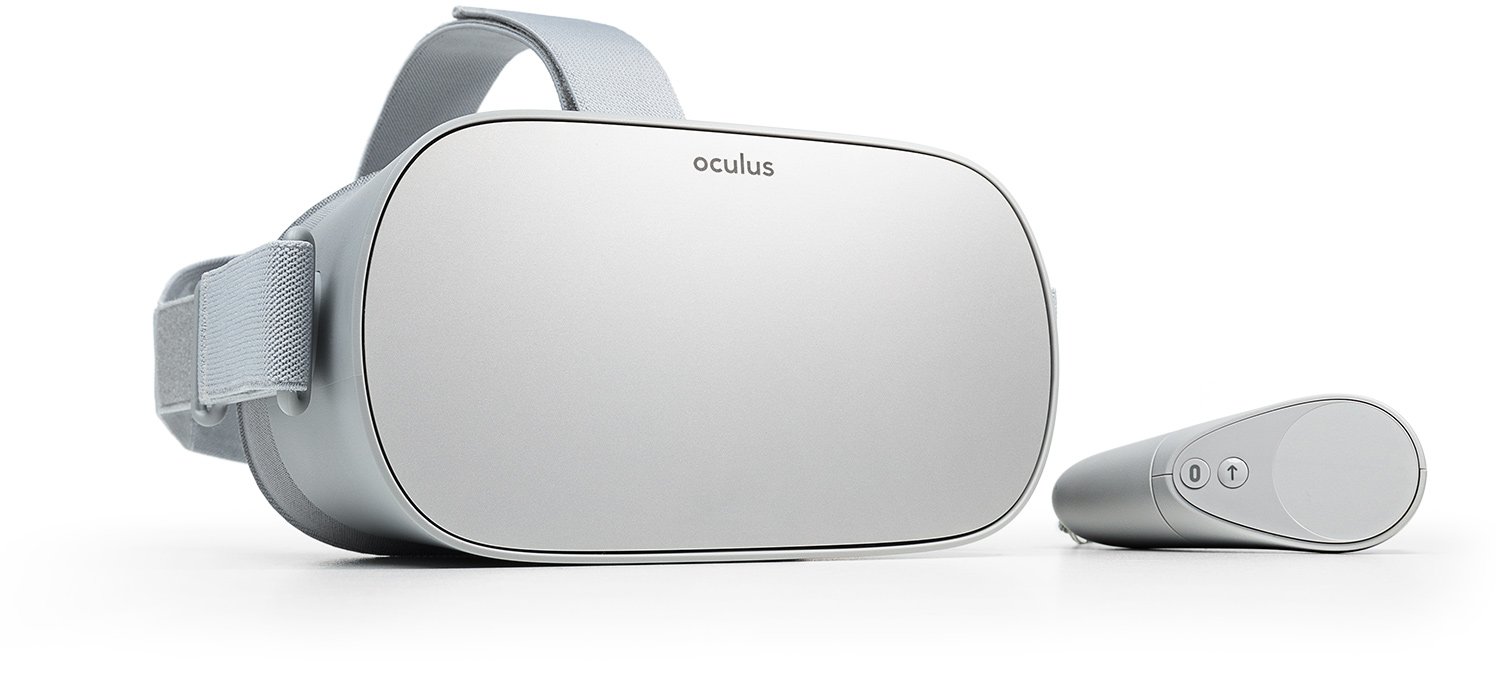Facebook Discontinues Oculus Go VR Headset Sales
The 3DoF era comes to and end.
Facebook has today announced that it is discontinuing the sales of its cheap entry-level Oculus Go VR headset and will instead focus on its pricier Virtual Reality products. In a blog post, Facebook says it will “double down” on improving its Quest and Rift offerings as it phases out the Oculus Go headset.

The Oculus Go headset was launched in May 2018 with a starting price of $199. This was Facebook’s cheapest VR headset and a popular entry level option. It is an all-in-one Virtual Reality headset that can work on a standalone mode; you don’t have to tether it to a smartphone or a computer for the computing power. Following its launch in 2018, Facebook went on to release two more powerful but mid-priced virtual reality headsets in 2019: the standalone Oculus Quest headset and the PC-based Oculus Rift S VR headset that must be tethered to a PC to function. The two powerful VR headsets both cost $399.
Oculus Go was the first virtual reality VR headset to successfully deliver highly immersive experiences within an all-in-one form factor. It gave users the advantage of a standalone virtual reality experience along with an ultra-low price point that dropped to as low as $149 over the past few months in the run-up to its retirement. However, in spite of its attractive functionality and attractive pricing, the Oculus Go headset still has very limited input options and with a 3DoF tracking, it can only track the user’s head.
On the other hand, the standalone Oculus Quest and the PC-powered Oculus Rift headsets provide full tracking of the wearer’s head position or 6DoF. The Oculus Quest is more expensive and heavier than the Oculus Go headset but its 6DoF was a significant upgrade over the Oculus Go headset in terms of the comfort as well as the overall experience. The 6DoF tracking functionality is required to pay some of the most popular virtual reality titles from the leading VR studios including Ready at Dawn, Beat Games and Sanzaru Games. These three VR game studios have been acquired by Facebook over the past few months.
While Facebook is yet to disclose stats on its VR hardware sales, the company reported $297 million in revenues from its non-advertising business which also includes the Oculus segment. That represented an 80% rise in non-advertising revenues over the previous year.
Facebook’s decision to discontinue Oculus Go sales comes on the heels of the company’s acquisition of Ready at Dawn Studios this week. The deal was Facebook’s latest in its acquisition spree of Virtual reality studios over the past year.
In January this year, Facebook removed Oculus Go from its business program and in late last year, the tech giant discontinued its Rooms social service on Oculus Go. It also announced the upcoming Horizon social networking service only for Quest and Rift.
This has, therefore, been long time coming but following today’s confirmation, Facebook also stated that it will now stop accepting new Oculus Go apps as well as app updates on its store from December 4, 2020. Also, Facebook won’t be adding new apps to the store from December 18 this year.
Users who own an Oculus Go VR headset will continue using them even after the sales have ceased. Facebook will also continue maintaining the Go system software via security patches and bug fixes through 2022, according a statement released today.
https://virtualrealitytimes.com/2020/06/23/facebook-discontinues-oculus-go-vr-headset/https://virtualrealitytimes.com/wp-content/uploads/2019/07/Oculus-Go-VR-Headset-600x270.jpghttps://virtualrealitytimes.com/wp-content/uploads/2019/07/Oculus-Go-VR-Headset-150x90.jpgBusinessHardwareOculusOculus GoVR HeadsetsThe 3DoF era comes to and end. Facebook has today announced that it is discontinuing the sales of its cheap entry-level Oculus Go VR headset and will instead focus on its pricier Virtual Reality products. In a blog post, Facebook says it will “double down” on improving its Quest and...Sam OchanjiSam Ochanji[email protected]EditorVirtual Reality Times - Metaverse & VR
